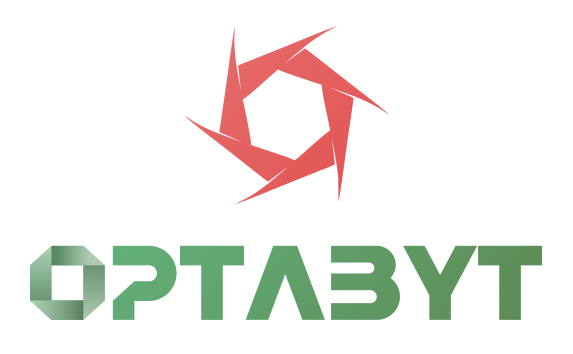
Table of Contents
ToggleBusiness Marketing – Smart Strategies to Grow Your Brand in Norway
Table of Contents
Business Marketing – Smart Strategies to Grow Your Brand in Norway
Understanding Business Marketing
In today’s competitive digital landscape, business marketing is no longer just about promoting products — it’s about building meaningful connections, delivering value, and creating lasting relationships with customers. Whether you run a small startup or a large enterprise, effective marketing helps your brand stand out, attract clients, and drive long-term growth.
Business marketing involves a combination of strategies — from digital advertising and content marketing to SEO, email, and social media engagement. When executed correctly, these tools ensure your business reaches the right audience with the right message at the right time.
Why Business Marketing Is Crucial for Growth
Marketing is the bridge between your business and your customers. Without it, even the best products or services can go unnoticed. Here’s why business marketing is essential for success:
Builds Brand Awareness: It ensures potential customers recognize and remember your brand.
Drives Revenue: Targeted marketing campaigns convert visitors into paying customers.
Creates Trust: Consistent communication builds reliability and customer loyalty.
Gives Competitive Advantage: Smart marketing helps you stand out in crowded industries.
Supports Business Goals: From sales to expansion, marketing aligns with your overall strategy.
In essence, business marketing is not an expense — it’s an investment in your brand’s future.
The Core Elements of Effective Business Marketing
1. Market Research
Every successful marketing strategy begins with deep understanding. Market research allows you to identify your target audience, analyze competitors, and understand consumer needs. Knowing who your ideal customers are helps you craft campaigns that truly resonate.
2. Branding and Positioning
Your brand is more than a logo — it’s your identity. A strong brand communicates trust, consistency, and value. Positioning defines how your business stands out from competitors. For example, Apple positions itself as a premium brand emphasizing design and innovation.
3. Digital Presence
In today’s digital-first world, your online visibility determines your success. A professionally designed website, active social media presence, and optimized Google profile are essential tools for any modern business.
4. Content Marketing
Creating high-quality, valuable content builds credibility and attracts organic traffic. Blog posts, case studies, and informative guides position your brand as an industry authority.
5. Search Engine Optimization (SEO)
SEO is the foundation of digital marketing. By optimizing your website for search engines, you ensure that your brand appears when potential customers search for related products or services. Optabyt’s SEO strategies focus on keyword optimization, user intent, and content relevance.
6. Paid Advertising (PPC & Google Ads)
Pay-per-click (PPC) advertising, including Google Ads, helps businesses reach potential clients instantly. With precise targeting, you can ensure your ads are shown to users most likely to convert.
7. Email Marketing
Email remains one of the most cost-effective marketing tools. Personalized emails help you nurture leads, retain customers, and promote special offers directly to interested audiences.
8. Social Media Marketing
Platforms like Facebook, Instagram, LinkedIn, and TikTok allow businesses to engage audiences directly. Social media is not just for visibility — it’s a space for conversation, feedback, and trust-building.
9. Customer Relationship Management (CRM)
A strong CRM strategy allows businesses to track customer behavior, preferences, and interactions. With this data, you can create personalized experiences that enhance satisfaction and retention.
10. Performance Tracking and Analytics
No marketing strategy is complete without measurement. Tools like Google Analytics and social insights help track traffic, engagement, and ROI. Regular analysis ensures that your campaigns remain effective and relevant.
Digital Marketing for Businesses in Norway
Norway’s digital market is dynamic, fast-evolving, and highly competitive. Businesses must focus on data-driven marketing and localized strategies to attract Norwegian audiences effectively.
Successful digital marketing in Norway involves:
Localized SEO – Optimizing for Norwegian search terms and local intent.
Mobile-First Design – Ensuring websites perform flawlessly on smartphones.
Bilingual Communication – Combining English and Norwegian to reach a wider audience.
Transparency and Ethics – Norwegian consumers value honesty and sustainability.
With these strategies, your brand can connect with audiences who value authenticity and quality — the core of Norwegian consumer culture.
The Role of Optabyt in Business Marketing
At Optabyt, we specialize in helping businesses in Norway grow through customized digital marketing solutions. Our approach combines creativity, data, and advanced technology to deliver measurable results.
We focus on:
SEO optimization and keyword strategy
Google Ads management
Website design and maintenance
Content creation and branding
Analytics and performance tracking
Our team ensures that every campaign aligns with your brand’s identity and business goals. Whether you’re launching a new company or scaling an existing one, Optabyt helps you turn marketing into measurable success.
How to Build a Business Marketing Plan
A structured plan ensures consistency and direction. Here’s a simple framework to follow:
Set Clear Objectives – Define specific, measurable goals such as “Increase web traffic by 30%” or “Generate 100 new leads.”
Identify Target Audience – Understand who your ideal customer is, their interests, and purchasing behavior.
Choose Marketing Channels – Select the right mix of SEO, paid ads, social media, and email marketing.
Develop Key Messages – Communicate your value clearly and consistently.
Create a Content Strategy – Plan blogs, videos, and case studies that educate and engage.
Monitor Performance – Track results regularly and adjust your approach based on data.
Common Mistakes to Avoid in Business Marketing
Even with the best intentions, many businesses struggle with marketing because of avoidable errors:
Ignoring market research before launching campaigns.
Over-reliance on paid ads without organic growth strategies.
Lack of brand consistency across platforms.
Not measuring performance to identify what works.
Neglecting customer relationships after conversion.
Avoiding these mistakes can save time, resources, and lost opportunities.
Future Trends in Business Marketing
The marketing world is evolving rapidly. Businesses that adapt to new trends gain a strong competitive edge. Emerging trends include:
Artificial Intelligence (AI) for personalized recommendations.
Voice Search Optimization to capture conversational queries.
Video Marketing as a primary form of engagement.
Sustainability Marketing focusing on ethical practices.
Augmented Reality (AR) for interactive experiences.
Staying updated with these trends ensures your marketing remains modern and relevant.
10 Frequently Asked Questions (FAQs)
1. What is business marketing?
It’s the process of promoting your company’s products or services to attract, convert, and retain customers.
2. Why is marketing important for businesses?
It builds visibility, trust, and helps generate consistent sales growth.
3. What is the difference between B2B and B2C marketing?
B2B targets other businesses, while B2C focuses on individual consumers.
4. How can digital marketing benefit small businesses?
It’s cost-effective and allows small companies to compete with larger brands through smart targeting.
5. How long does it take to see results from marketing?
SEO and branding take time (3–6 months), while paid ads can show results immediately.
6. What are the best marketing channels for Norwegian businesses?
SEO, Google Ads, social media, and local content marketing work best in Norway.
7. Should my business have a marketing plan?
Yes — it gives structure, direction, and helps measure progress effectively.
8. Can I manage marketing myself?
You can, but professional help ensures strategy, consistency, and better ROI.
9. How does Optabyt help with business marketing?
Optabyt provides tailored SEO, content, and ad strategies for growth-focused companies.
10. What’s the future of business marketing?
It’s data-driven, customer-focused, and powered by automation and AI.
Conclusion
Business marketing is not just about promotion — it’s about building meaningful relationships and creating real value for customers. With the right mix of research, creativity, and technology, any business can achieve lasting growth and visibility. Whether you want to attract new clients or strengthen your digital presence, success begins with a strong marketing foundation.
Partner with Optabyt to elevate your brand, optimize your campaigns, and unlock your business’s full potential in the Norwegian digital market.
Lorem ipsum dolor sit amet, consectetur adipiscing elit. Ut elit tellus, luctus nec ullamcorper mattis, pulvinar dapibus leo.
